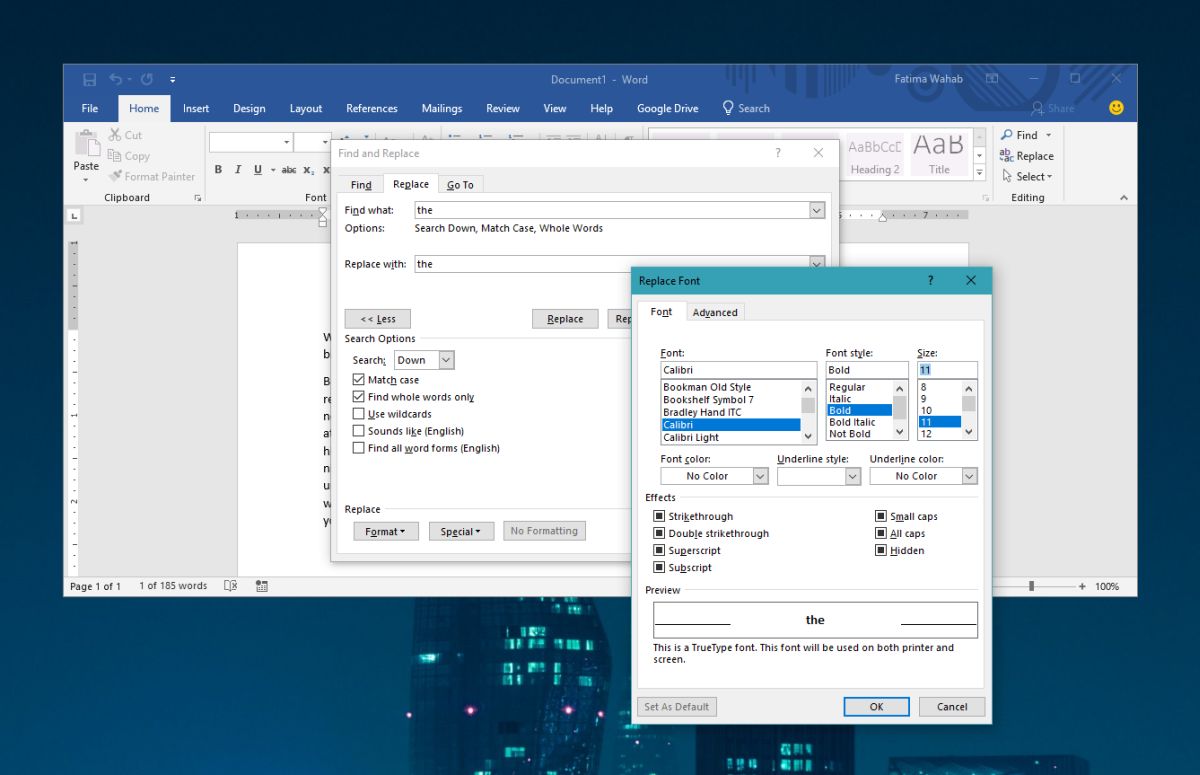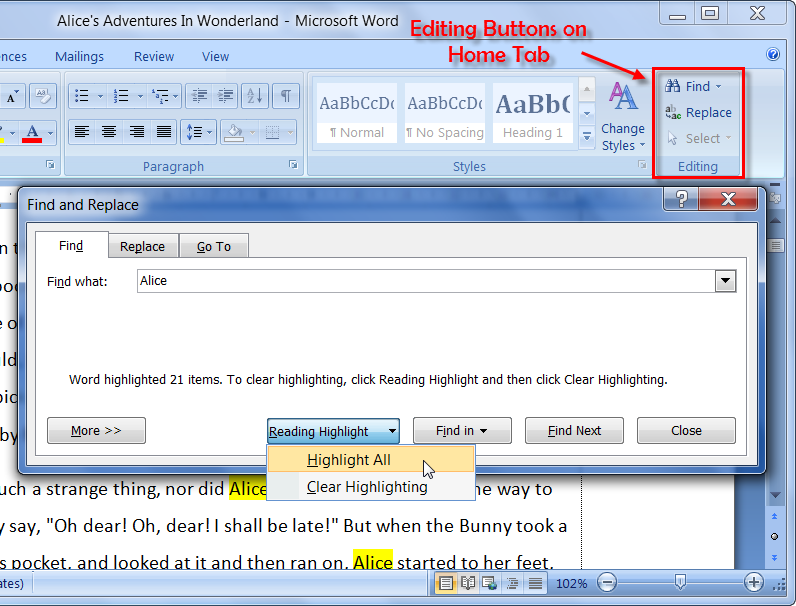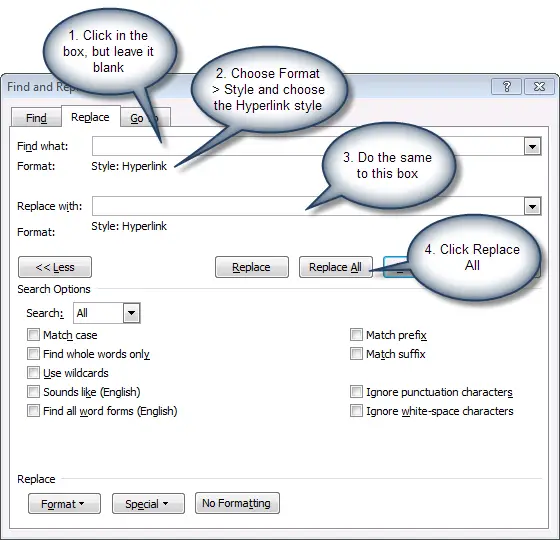

I have modified the code to modify the selection, shown below. I checked selecting the range and just the word was selected, but then the whole paragraph was formatted. Ok, your document behaves has you described, I'm not quite sure why. If mykeywords(nkey) = LCase(Trim(rng.Text)) Then Mykeywords = Array("word1", "word2", "word3")įor nkey = LBound(mykeywords) To UBound(mykeywords)

I have tested it on the examples you gave (cut and pasted into word) and it changed the style for both instances word1. I have included the sub with the modification below. By the way if you want to keep the style of the word depending on whether it is upper or lower case then remove the LCase part. To If mykeywords(nkey) = LCase(Trim(rng.Text)) Then Providing that you have already defined the style "NewStyle" changing your if statement in SubFnR2 from If IsInArray(rng, mykeywords(nKey)) Then I believe the reason why your macro isn't finding the words is due to the presence of leading or trailing blank spaces. The other problem I would see with this approach is that I believe that AutoCorrect is global, whereas I need this only to work for a specific document.
#Microsoft word find and replace styles how to
However I have more than 100 keywords and have no idea how to add this to the AutoCorrect list automatically (I'm fairly VBA illiterate). Like in the most popular applications, to find a text in the document, you can use the Ctrl+F shortcut. Word1 also isn't changed in this instanceĪttempt 3 - AutoCorrect not actually tried:Īs an alternative I was thinking to use AutoCorrect. To help you in finding some text in the document, Word offers two different options. it finds Some textīut not Some text before word1 means that the code above doesn't change the format This finds words that are in single lines but skips the words that are within a paragraph for some reason, e.g. Rng.Style = ActiveDocument.Styles("NewStyle") Mykeywords = Array("word1","word2","word3")įor nKey = LBound(mykeywords) To UBound(mykeywords) This changes the style of the entire paragraph where the words are in.Īttempt 2 - Based on this question here How can I replace a Microsoft Word character style within a range/selection in VBA?: Sub FnR2()

Mykeywords= Array("word1","word2","word3")įor myword= LBound(mykeywords) To UBound(mykeywords) Ideally this would happen as I type but that is not crucial.Īttempt 1 - Based on recording a macro and changing the search term Sub Woohoo() The key words are stored within an array and I want to change the style of the particular word only. This answer assumes, that the expressions given in your question find what you want to find.I'm trying to find all instances of key words in a MS Word document and change their style. Please note: This answer does not contain a check of your regular expressions mentioned in the question. Select a desired Character Style from the Styles sidebar (preferred way to do, since this avoids direct formatting).Use all instances or all occurrences instead. Dont use global to describe finding and replacing. Search through your document, and replace cat with dog. Examples Find the word gem, and replace it with diamond. Dont use find and replace or find-and-replace as a noun or an adjective. Close the Find and Replace dialog (your finding are still selected) Use find and replace as separate verbs, not as a single verb phrase.Click button Find All (all findings in your complete text or your selection get selected).Enter your Find expression (as per your questions).If you want to change the format using Find and Replace you need to do the following (see also comment above): E.g putting $1somemodification into the Replace will change all findings "found* into foundsomemodification.

(\*\*.+\*\*) capturing the match into a buffer, which could be referred to by $1 (first pair of parenthesis), $2 (second pair of parenthesis) … and so on in the Replace field. To reuse text you need to surround your Find expression by parenthesis: E.g. So if I put \*\*.+\*\* in Replace, all Regular Expressions of \*\*.+\*\* is now the literal text \*\*.+\*\*, but formatted with what I set in Format (and not the text it had before). If I put in the same regular expression in Replace as I put in Find, it just literally replaces each instance of the Regular Expression with the text of the Regular Expression.If I leave Replace empty, it just replaces each instance of the Regular Expression with no text.What can I put in the Replace field in order to keep the Text? I have figured out the proper Regular Expressions I need to put in Find for the 3 above examples I mentioned:Īnd I know how to use the Format button for the Replace field (for changing the Style and/r Font), but … All, I want the Text to be in “Courier New” Font.All _Any Text Here_, I want the Text to Italicized.All **Any Text Here**, I want the Text to be Bolded.Now that the Text is in LibreOffice, I want to format the text (using Regular Expressions) based on certain sets of Characters before and after them. I am manually copying and pasting the text from it to LibreOffice. I’ve got a file that uses Markdown (Twine to be specific). So I’ve been studying up on LibreOffice Regular Expressions.


 0 kommentar(er)
0 kommentar(er)
